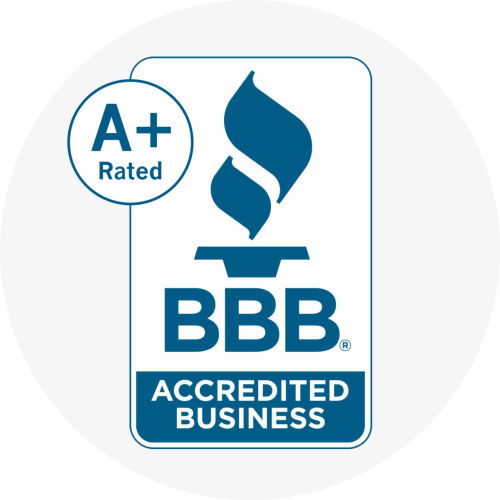Cloud-hosted services refer to a wide variety of products and services delivered over the internet. Cloud hosting enables ubiquitous, convenient, on-demand access to a pool of computing resources such as servers, networks, storage space, and applications.
You can rapidly provision and release these with less administrational effort or the intervention of a service provider.
In this article, we’ll look at how cloud hosting works and the benefits thereof.
Let’s take a look.
How Cloud Hosting Works
Many companies offer hosted cloud services with an array of service levels. Some companies allow customers to host their websites, while others manage the entire operation.
Cloud hosting works by placing your files and computing resources into one or more virtual machines (VM).
The VM runs on top of a hypervisor — a piece of software that creates an environment in which other software can run and interact with each other.
The hypervisor is a host for all VMs and manages their resources, such as CPU, RAM, and storage space.
Cloud servers are very flexible in that they’re designed to handle any workload. You can scale up or down depending on your needs, which means that you don’t pay for more than you require at any time.
Most cloud providers also offer some form of backup service, so if anything happens to your data, it will be restored within minutes.
Types Of Cloud-Hosted Services
Cloud-hosted services are the most popular form of Cloud Computing. It is a service that provides an environment to store your data and access it from anywhere on any device. The three main types of cloud-hosted services include

Software as a Service (SaaS)
SaaS is software hosted and managed by a provider on the cloud. You don’t install it on your own computer or in your own data center; you simply log in to it through the internet and get started.
Platform as a Service (PaaS)
PaaS refers to an environment where developers can build applications without dealing with infrastructure and operations issues.
In other words, they don’t need to worry about installing and configuring operating systems, databases, or application servers because PaaS handles all of that on the cloud.
Infrastructure as a Service (IaaS)
IaaS provides the user with a virtual machine running on an infrastructure owned and managed by the cloud provider. This is typically the most basic level of service and is ideal for testing or small-scale deployments.
Examples Of Cloud-Hosted Services
Examples of cloud-hosted solutions used in everyday business operations:
Cloud-Hosted Phone Systems
This is a useful option for small businesses that need a phone system but don’t necessarily want to invest in equipment and maintenance.
Cloud-hosted phone systems work by connecting your business phone lines to a remote server. That way, you can have a virtual office with no extra hardware. You can also choose between different types of plans to fit your needs.
Cloud-Hosted Email Services
Cloud-hosted email services allow you to send and receive emails from any device. This means that even if you’re on vacation or at home sick, you can still check your inbox and respond to messages without worrying about missing anything important while away from the office or home office.
This also saves time and money by eliminating the need to buy extra software licenses for every device in your office setup.

Collaboration Software
Cloud-based collaboration apps such as SharePoint Online and Office 365 make it possible for workers in different locations to work together on projects without meeting face-to-face.
These tools also allow employees across departments to collaborate more effectively, making them especially useful for companies with large remote workforces.
CRM Software
Cloud-based CRM software allows businesses to manage their customer relationships from anywhere using mobile devices.
CRM tools help companies keep track of customer information and make sales leads more visible so that sales reps can focus on closing deals rather than searching through records to find leads.
Shared Hosting Vs. Dedicated Hosting Vs. VPS
Here is how you can differentiate the three main categories of cloud-hosted services.
Shared Hosting
Shared hosting services allow users to rent space on a web server that is shared with other users. This is by far the most popular type of hosting web service in existence today. It offers great value at an affordable price compared to other web services.
Dedicated Hosting
Dedicated servers are resources that are provisioned just for your company or organization. These servers are not shared with anyone else and come with all the hardware necessary to run an application or website at peak efficiency. The resources include processors, RAM, hard disk space, and much more.
Virtual Private Servers (VPS)
A virtual server runs on a physical server that has been partitioned into multiple virtual servers. Each virtual server has its operating system, CPU, and RAM.
However, these resources are sharable with other virtual servers on the same physical machine. You can get more power than what would be available from a single server without investing in expensive dedicated hardware.

The Benefits Of Cloud-Hosted Services
Here are some of the key advantages of having your computing and IT services hosted on the cloud:
1. Scalability
The cloud can accommodate unlimited clients due to its elastic nature. As the demand for services increases, you can easily add new ones without much effort.
Most cloud providers offer pay-as-you-go plans which means that you only pay for what you use and not a fixed price for all clients.
2. Reliability
Cloud providers have an abundance of power connections, high-speed internet connections, and backup systems to ensure their services never go down.
This makes them more reliable than traditional hosting providers as they don’t depend on a single source of power or connectivity.
3. Security
Data centers owned by cloud providers have security staff on-site 24/7 who monitor system activity and respond accordingly if any suspicious activity is detected.
Additionally, they use sophisticated firewalls, intrusion detection systems (IDS), and anti-virus software to protect data from unauthorized access.
4. Affordability
Hosted cloud services are very cost-effective compared to regular dedicated servers or VPSs.
The money saved on buying a physical machine can be used for other purposes, such as marketing and advertising.
This also means that you don’t have to spend money on maintenance and electricity bills like traditional web hosting solutions.
Conclusion
The solution for improving business performance and profitability is the cloud. Stellar Communications offers various cloud-hosted communication services for businesses of all sizes.
Our cloud solutions allow you to reduce your overall IT costs, scale up or down as necessary, and focus on growing your business instead of managing your telecom infrastructure. Schedule an exploratory call.









